
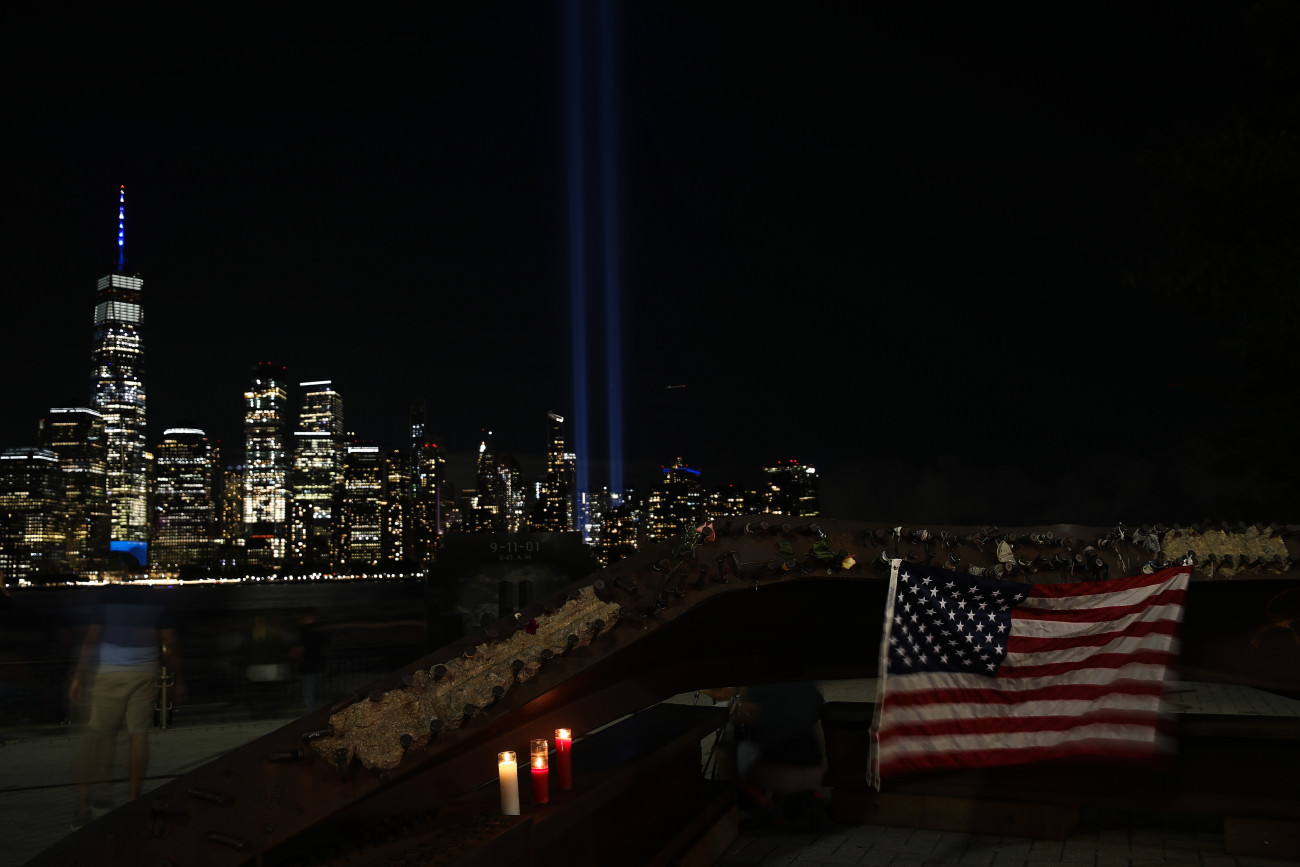
Introduction
Twenty years ago, on September 11, 2001, al-Qaeda attacked New York and Washington, killing nearly 3,000 people. The terrorist attacks and their aftermath transformed U.S. policy, giving rise to the war on terror and the military intervention in Afghanistan. On the 20th anniversary of 9/11, scholars and Advisory Council members of MEI’s Countering Terrorism and Extremism Program offer their reflections.
Photo by Tayfun Coskun/Anadolu Agency via Getty Images
Reflections
-
Joseph L. Votel
Joseph L. Votel
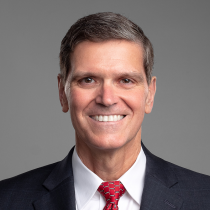
It is crucial to put the sacrifice of so many in perspective
I always considered our response to the attacks of 9/11 to be a noble effort designed to not only hold those responsible accountable but, as importantly, create something good out of this horrendous tragedy. Unfortunately, as we have seen play out in the last few weeks, it did not turn out this way. With al-Qaeda diminished and their external attack objectives largely blunted, Afghanistan is on the cusp of again being a platform for terrorist organizations. As I reflect on this, three thoughts are constantly running through my mind.
First and foremost, I think it is crucial to put the sacrifice of so many in perspective — and it is something that I and I believe many others have struggled with over the last few weeks. While we did not achieve our strategic objectives in Afghanistan, I think it is also clear that the causes for this failure did not come from those who bore the brunt of the war. In my estimation, the sad ending of our involvement in Afghanistan does little to diminish the personal sacrifices made by so many. They served honorably and nobly, and they did everything asked to hold our enemies accountable and make things better for the Afghan people.
Secondly, despite our necessary focus on strategic competition with China, we still have a problem with terrorism, whether it emanates from Afghanistan or other regions. Our military, intelligence, and diplomatic professionals will need to stay focused on this. We still have a vital national interest to protect American citizens and the homeland from the scourge of terrorism. We have developed exquisite capabilities to combat terrorism, and we will need to sustain this moving forward. We should debate the quantity and expansiveness of our counter-terrorism efforts, but we must resist the urge that this should no longer be a concern. One thing that is clear to me is that terrorist organizations learn and adapt, and we should expect that they will continue to do so in the future. We take our eye off this threat at our peril.
Finally, it is time for serious discussion on our National Security Strategy and how seemingly disparate topics like countering terrorism and strategically competing with China fit together. Again, we should look to the example of President Dwight D. Eisenhower’s Project Solarium — a 1953 effort to produce consensus between senior leadership in the national security community on a strategic approach to protecting our vital national interests. Along with this, we must reconcile our policy to partnership. We have sent incredibly mixed signals to those who help us achieve our objectives; it is time to clean this up. And we must devise a better way to communicate to our adversaries and the international community and, in fact, to the American people about our objectives and the strategy to achieve them. Most American citizens could not explain what we were doing in Afghanistan for the last 20 years — a severe indictment of our current approach to national security.
I hope all Americans take some time on this 20th anniversary to think about not only that very dark day but also the sense of duty and community we all felt in the immediate days, weeks, and months that followed. We need this now more than ever.
General (ret.) Joseph Votel is a distinguished senior fellow on national security at MEI. He retired as a four-star general in the United States Army after a nearly 40-year career, during which he held a variety of commands in positions of leadership, including most recently as commander of U.S. Central Command (CENTCOM) from March 2016 to March 2019.
-
Edmund Fitton-Brown
Edmund Fitton-Brown

We need to internalize the lessons of the last 20 years
Like everyone else, I remember exactly where I was when the planes struck the Towers. I was walking the corridors of my office in London and became aware of a group of colleagues gathered around one of the (in those days, rare) office TV sets. I went in and watched with them, trying to understand what terrible accident had occurred, and then the second plane hit. We looked at each other. We all knew the world had just changed in front of our eyes.
Since then, my career with the U.K. government, and now with the U.N., has revolved mainly around counter-terrorism (CT). The balance of our work shifted and lessons had to be learned rapidly. We entered the era of the war on terror, which has since evolved through several phases, the most dramatic the rise of ISIS, the establishment of their so-called “caliphate,” and the subsequent international reaction that led to its destruction. Twenty years on we have come full circle, with attention turned back to Afghanistan and a new Taliban ascendancy, while others worry about new terrorist frontlines in Africa.
As with all of the complex challenges of the modern world, terrorism demands a response commensurate with the threat and integrated into the framework of challenges and policy responses of member states and the international community. Hard CT in the absence of mitigation of underlying causes is unlikely to be sufficient. Coercive action not grounded in the rule of law is likely to be counterproductive. Monopolizing policy bandwidth may lead to neglect of other issues of equal or greater strategic importance (climate change, for example?). Equally, an over-reaction away from CT, for example after something as compelling as COVID-19, runs the risk of easing pressure on terrorists and allowing their threat to revive.
Let’s internalize the lessons and avoid lurching between over- and under-reaction. The international directed threat from ISIS and al-Qaeda is lower than it has been for years but their intent and the underlying factors that gave rise to them persist. International cooperation and CT know-how, both promoted by the U.N., are equal to the challenge if we continue to nurture them. Human rights compliant CT is ethically sound and legally sustainable. We can and must continue to safeguard a world that is better than the dystopia promoted by terrorists.
Edmund Fitton-Brown is the Coordinator of the United Nations ISIL/Al-Qaida/Taliban Sanctions Monitoring Team, and a former Ambassador of the United Kingdom to Yemen.
-
Karen Greenberg
Karen Greenberg

Any new CT strategy must address “root causes”
The withdrawal from Afghanistan addresses more than the mere presence of troops in the war on terror. It is a signal that the broader 20-year reliance on war as the defining framework for U.S. counter-terrorism (CT) efforts has come to an end. In its place, a new phase in beginning, one that will hopefully be able to avoid the pitfalls of the “forever war” paradigm.
At the outset of the war on terror, terrorism was seen as an existential threat to the U.S., one that would be won with a heavy military footprint. Today, leading experts envision terrorism as a persistent global threat to be managed by the coordination of law enforcement and intelligence agencies. And in reducing the reliance on military force, soft power, exercised in multilateral efforts and alliances, is seen as crucial to future efforts to ensure safety and stability across the globe. If the last 20 years has taught us nothing else, it is that destructive forces — be they terrorism, disease, the economy, or climate issues — create both local and global crises and that coordinated multilateral responses are essential.
However, the lessons from the past necessitate the inclusion of one additional element. Any new CT strategy needs to attend in major ways to the deprivations suffered by individuals upon whose fear and hopelessness terrorist recruiters prey. The once prevalent references to “root causes” warrant renewed and forceful attention as part of the third decade of any global CT strategy. This would include prioritizing the repatriation of the estimated 72,000 children held in Northern Syria; a global strategy for attending to displaced persons generally, estimated to be at 82.5 million and growing; and global efforts to address to poverty and violence.
Prioritizing humanitarian efforts, however ambitious, is imperative for any new CT strategy. As war recedes, care for those in need of sustenance and protection can and must take their place alongside enforcement efforts. Without it, a truly sustainable future for CT efforts will likely remain elusive.
Karen J. Greenberg is the Director of the Center on National Security at Fordham Law, an International Studies Fellow at New America, and a permanent member of the Council on Foreign Relations.
-
Charles Lister
Charles Lister
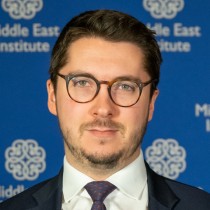
We have won battles, but we are losing the war
Twenty years on, the memory of 9/11 remains permanently etched in my mind. As is the case for so many others, the experience of watching events unfold that day had a profound impact on me — catalyzing an intense personal determination to better understand the threat and grasp what exactly makes terrorists “tick.” After beginning with work on Afghanistan and then moving later onto Syria and the wider Middle East, it has become increasingly clear to me that while we may have methodically perfected our ability to kill terrorists and neutralize threats, our willingness to determinedly and sustainably invest in dealing with terrorism’s root causes has changed little since 2001.
While substantial advances in homeland security mean the United States is now arguably safer from a 9/11-style terrorist attack than at any point since 2001, the same cannot be said for the situation abroad. From Africa through the Middle East and into South and Southeast Asia, the threat posed by jihadist terrorism and ideology has never been more diverse, more globally distributed, more sophisticated, more financially self-sustaining, or more actively present in as many theaters. Far from defeating terrorism, the U.S. and our allies have won battles, but we are clearly losing the war.
This ought to be a profound source of concern for policymakers, but after two decades of substantial effort — and not insignificant strategic missteps — bipartisan political fatigue is driving a worryingly short-sighted run for the counter-terrorism (CT) exit. The national security establishment is similarly right in insisting that “great power competition” be the United States’ foremost foreign policy priority, but to insist that CT has no part to play in that equation would be ill-judged. Extremism and terrorism thrive in vacuums, as do malign governments and our great power competition. The first governments to express an intent to establish ties with a Taliban-run Afghanistan were not the U.K., Canada, and France; they were China, Russia, and Iran.
Looking ahead, President Joe Biden is right to orient carefully focused resources toward “over the horizon” CT, but ultimately that amounts to little more than a band-aid. Moreover, to be effective and sustainable, over the horizon CT requires, at minimum, forward-deployed air assets and special operations forces, as well as intricate and extensive networks of air access and overflight agreements. Without such arrangements, we will always come up short and the risk of error rises markedly. In truth, maintaining small deployments of declared or undeclared forces inside terrorism affected states, backed up by over the horizon air capabilities, represents the most effective model — like what the U.S. currently does in Syria and Yemen.
An over-reliance on stand-off CT also places an additional onus of responsibility on local governments to be more effective at stemming terrorism challenges domestically. That dependence model is ridden with examples of serious failure, including most recently in Iraq and Syria. In all likelihood, Afghanistan will come to be the next such example for history books. The sudden emergence of a Taliban-run Afghanistan could prove to be the most significant opportunity for the global jihadi movement in decades.
Since the so-called Arab Spring uprisings, most corners of the Middle East have also witnessed the return of dictatorial and corrupt government, as well as increased economic decline and the coming long-term effects of the COVID-19 pandemic, climate change, a still-growing youth bulge, and a West far less inclined to get involved. The ingredients for terrorism’s continued growth and development are all clear to see. A gradually emerging desire to relegate CT to a policy afterthought could not come at a worse time.
Charles Lister is a senior fellow and the Director of the Syria and Countering Terrorism & Extremism programs at the Middle East Institute.
-
Paul Salem
Paul Salem
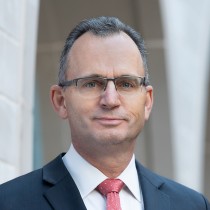
September, seen from the region
It was a warm September afternoon in Beirut, when I and most people in the Middle East saw the images streaming in by satellite television of the first, then the second and third attacks, in New York and Washington on September 11, 2001. I, and many around me, were dumbstruck and deeply shaken by the scale of the loss of life, and by the audacity of those that carried it out. After the attacks on U.S. embassies in Africa, and after the first botched attack on the Twin Towers in February 1993, for those of us who follow Middle East politics and extremist groups, the fact of the attack did not come as a complete surprise, but the scope and impact of it was beyond what anyone could have imagined. It underscored how the problems and troubles of the Middle East would not stay in the Middle East. And how the U.S. had assumed that the risks of the Middle East would not strike in the homeland and had left its society extremely vulnerable to a simple — if ingenious — plan to use American civilian aircraft, in American airspace, against major American civilian and military targets.
We could see that the attack itself would be a dangerously powerful marketing tool for violent jihadi extremists that already plagued the Middle East. No state, let alone non-state actor, had struck the U.S. mainland at anything like this scale since the early 19th century. And indeed, it was a powerful rallying cry that swelled the ranks of al-Qaeda and then later ISIS as well.
We could not foresee the U.S. administration’s response, as it had not yet been formulated. But as the George W. Bush administration made the decision first to topple the Taliban, and then to invade Iraq and topple the regime of Saddam Hussein there, it became clear that the profound change in policy that would be brought about by the attacks would end up having a much larger geopolitical impact than the horrifying and tragic attacks themselves. And as the U.S. became overstretched and mired in both Afghanistan and Iraq, it appeared that Osama bin Laden had gotten the rise and effect from America that he was trying to elicit.
The scourge of violent jihadi extremism did not start on September 11. In the bigger picture, that scourge was largely created by complex conditions in 1979. In that year, the U.S., Pakistan, and Saudi Arabia agreed to weaponize violent Sunni jihadis against the Soviets, and the new Islamic Republic in Iran decided to weaponize Shiite jihadis to spread its own power and influence in the region.
The impact of the U.S. reaction — or overreaction — to the attacks can be focused on the wars in Afghanistan and Iraq. The 20-year war in Afghanistan has come full circle. In effect, al-Qaeda and its erstwhile allies and protectors, the Taliban, have won. This in itself will be a major recruitment boon for violent jihadi groups. In Iraq, the result is more complex, as the main geopolitical winner there was and continues to be Iran.
The world and the Middle East have been gravely affected by the events of September 2001 and by the change in U.S. policy that they brought about. We will have to see in the months ahead how the U.S. withdrawal from Afghanistan allows it to reposition and recalibrate; which direction the Taliban choose to go in; and how Iranian policy develops after Ebrahim Raisi’s victory and with or without a return to the JCPOA with the U.S.
Paul Salem is the president of the Middle East Institute.
-
Richard Barrett
Richard Barrett
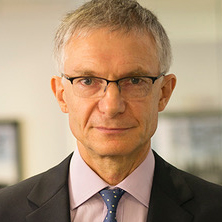
Terrorism is here to stay and we need to better understand what drives it
There can be few people who still think it was a good idea to call the last 20 years of effort against terrorism “a war.” If it was one, then we have not yet won it, and still do not know what victory would look like. Terrorism is unfortunately here to stay; and having proved so successful a way to gain attention and intimidate the public, there is likely to be an expansion of its use beyond the small cliquish and cultish groups, such as al-Qaeda, the Islamic State, Boko Haram, and al-Shabaab, that have become so well known for their terrorist atrocities. Indeed, whatever definition of terrorism distinguishes it from warfare, it is hard to imagine that combatants in future wars will not see terrorism as a valid and effective way of extending their arsenal and reach.
If anyone has won “the war on terror,” it is terrorism itself. Even 20 years after the events of 9/11, pictures of the burning World Trade Center are widely available and immediately recognizable, even though over half the world’s population was either not yet born or too young to remember with clarity the impact of the attacks. Terrorism has become a weapon of war, and its simplicity and economic use of resources has put it within the reach of any group with access to the most basic potential weapon, such as a car or a knife. No amount of bollards or metal detectors can provide complete protection, especially in view of the almost limitless number of potential targets.
Nonetheless, counter measures, however ineffective, have become a ubiquitous reminder of the threat and have constrained basic freedoms. We are no longer able easily to access public buildings or the people who govern our lives. Our societies have become more militarized. We have become more fearful of people who do not look or sound like us. We are less tolerant and less able to recognize where conflict arises between protecting our persons and protecting our values. Fear of “the other” has reversed our previously steady progress toward social integration, inclusivity, and the rule of law. The organs of state have become adept at justifying an expansion of their coercive powers in the face of a threat that often remains unexplained and unexamined.
Too few people stop to consider why people commit terrorist acts and whether it is possible to address some of those drivers in a way that would reduce the threat of violence. Terrorism even now, 20 years after 9/11, occupies a special place at the pinnacle of crime. It absorbs all available resources and takes precedence over the public exercise of basic freedoms when there is any perceived conflict between them. Fortunately, terrorists are not numerous in Western societies, but we should spend more time analyzing and addressing the reasons that they exist rather than do their job for them by spreading anxiety and oppression through muscular counter measures.
Richard Barrett has been working to understand and mitigate the causes and consequences of violent extremism since 2000, first with the British Government, then at the United Nations, and now in the private sector.
-
Douglas London
Douglas London

Something wicked this way comes
Yes, the lights were blinking red, as the 9/11 Commission would later report, and like the witch’s ominous warning in Macbeth, another attack was coming, but where? Despite the East Africa embassy bombings, the strike against the USS Cole, and alarming intelligence reflections, we still found ourselves in shock. From many time zones away, I sat frozen, glued to images of the Towers vaporizing, not knowing then a childhood friend and first responder was among the thousands who had perished.
My CIA Station, like others around the globe, snapped into action. Being small with unique authorities and operating in the shadows allows for a rapid response to crises. We worked with foreign partners to lock down those with known or suspected terrorist ties to preempt the next attack and cultivate new sources, while preparing to bring the fight to those responsible. A CIA team would be on the ground in Afghanistan within two weeks.
Handling one of the CIA’s al-Qaeda penetrations at the time, I called for an emergency meeting, greeting my agent pistol at the ready, not knowing for sure just where his loyalties stood. Although contrite for what his colleagues had done, he could not conceal pride for their extraordinary accomplishment. And while he knew nothing of the attack, and would be invaluable in foiling future plots, perhaps his most enduring contribution to me was explaining his sentiments, and theirs.
In the ensuing 20 years, many would perish among the innocent and guilty alike, but for those of us who remember that day, the true story of 9/11 is how life changed. Like my agent, those among both friends and foes in distant lands long brutalized by the ravages of war, repression, and poverty would suggest that change was the goal.
Today’s disquieting normal of suspicion and hate among neighbors of different color, religion, and politics is the backdrop for an America now accessorized by barriers, metal detectors, bomb sniffing dogs, and police on our streets in combat attire, bearing assault rifles. Further away, death, devastation, and refugee camps paint the canvas among too many countries to name, several in which the U.S. has fought.
If Americans are to be spared the horrors suffered by other nations with diverse ethnic communities and politics who in the past coexisted peacefully but are now locked in bloody civil war, the lesson is that the cure should not be worse than the disease. War might at times be thrust upon us and inevitable. But with more forethought to the consequences, we can control the scale and the tools with which it’s fought.
Douglas London retired from the CIA in 2019 after 34 years as a Senior Operations Officer. He teaches at Georgetown University, is a Non-resident Scholar at the Middle East Institute, and is the author of the book “The Recruiter,” concerning the CIA’s post 9/11 transformation. Follow him @DouglasLondon5.
-
Eric Oehlerich
Eric Oehlerich

The eternal greenskeeper
The collapse of the Afghan government and army has many veterans, diplomats, NGO workers, and others questioning: What was it all for? Were all those lives lost in vain? What did all that spent national treasure accomplish? Having deployed to Afghanistan on September 19, 2001, then five subsequent times between 2003 and 2011, I can say definitively that from a counter-terrorism (CT) perspective, it was absolutely worth it. But Afghanistan isn’t the “whole” war on terror.
Mistakes were made in the early days. In attempts to limit U.S. casualties we prolonged the fight, finally getting retribution on May 2, 2011. Osama bin Laden was the public figure of terror, and he was held accountable by some of my good friends and teammates, after a herculean effort by our intelligence professionals. We needed Afghanistan to be successful in holding him, and al-Qaeda, accountable for the attacks on 9/11. But he was just the tip of the iceberg — below the waterline there is a vast number of incidents that paint the whole picture.
While watching a terrorist threat evolve, we used to say “let’s shape U.S. policy by Power Point.” That’s how it was between 2007 and 2017. We’d see a threat and lacking an overarching policy, we’d craft the problem statement and solution into a Power Point and send it to DC. Sometimes it worked, sometimes it didn’t.
We won a number of duels with our enemy, and they won some too.
Al-Qaeda in the Arabian Peninsula (AQAP) suicide bombers staging to bomb our embassy in Sana’a were dealt with. Al-Qaeda East Africa (AQEA) plotters looking to bomb the London 2012 Olympics were dealt with. ISIS-Libya facilitators and terror vanguards were dealt with. ISIS-Yemen leaders were dealt with. ISIS-Somalia was dealt with. Out of the public eye, driven by Power Point and endless video teleconferences, the collective inter-agency dealt with threat after threat after threat. Partner forces, kinetic strikes, and at times our own operators were the solutions.
AQAP almost brought down a passenger jet over Detroit on Christmas morning in 2009. The Taliban almost detonated a vehicle in Times Square. AQAP kidnapped and executed American citizens. AQEA killed American citizens watching soccer in Uganda. AQEA was behind the massive attack on the mall in Kenya. ISIS brought terror from Syria and Iraq into Northern Africa and thus, repeatedly, into Europe by extension. Yes, they won some too.
We’ve now pulled out of Afghanistan. Is the war on terror over? No.
Conflict involves more than one entity. We may want this to be over, but we don’t get to set those start-and-stop bounds. The enemy does. Our CT efforts can be best summed up as, we’re the eternal greenskeeper — continually mowing the lawn, at times spraying a bit of Round-Up on a particularly nasty bunch of weeds. Mowing the lawn might not be what we prefer, but once seeds germinate, they grow regardless.
Eric Oehlerich is a retired U.S. Navy Commander (SEAL) from the Naval Special Warfare component of the USSOCOM’s Joint Special Operations Command. He is a Non-Resident Senior Fellow for Technology and National Security with MEI, an Analyst for ABC News, and the Co-founder of End Child Soldiering and the Lobo Institute.
-
Jane Marriott
Jane Marriott

Learning from the past and looking to the future
For people over 30 years old, 9/11 was a defining moment. Most of us can remember seeing the events unfold, live, on television. It was up there with the moment John F. Kennedy was assassinated in 1963, the 1969 moon landings, and the 1989 fall of the Berlin Wall. Life — globally — was never going to be the same again.
The same is true of 9/11, ushering in an epoch of the war on terror. Wars in Afghanistan and Iraq had global implications as well as very personal impacts for those who lost loved ones, those who served, and every single Iraqi and Afghan as well as those impacted in the wider region.
But globally, over half the population is under 30 years of age. They were not born or were in kindergarten when 9/11 happened. To them, 9/11 is an historical event, not the current, career-changing one it was for those in the regions, in government, NGOs, and the security field.
A British 40-something friend took his 20-year-old daughter to New York, just before COVID. He’d served in Afghanistan and talked about it at home but wanted to take her to Ground Zero to understand and appreciate what had happened. “Ah yes,” she said, as they were walking towards the site. “Something horrible happened here, didn’t it? Was it a big fire?”
Having spent 20 years working on or in the Middle East and Afghanistan, it strikes me that, in general, those of us in the West tend to start from now and look to the future. But culturally, a lot of countries place today in the context of yesterday and have a different perspective. We need both: to learn from the past and look to the future.
Jane Marriott is a British career diplomat specializing in security, counter-terrorism, and Middle East issues. She is currently the UK High Commissioner (Ambassador) to Kenya, and was Ambassador to Yemen from 2013-15; and both deputy, then acting Ambassador to Iran (2010-12). From 2016-19, she established the UK’s Joint International Counter Terrorism Unit.
-
Mick Mulroy
Mick Mulroy
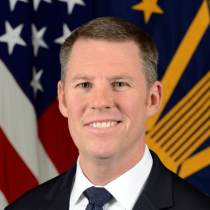
Never forget and never quit
On September 11, 2001, I was training to be a paramilitary operations officer in the CIA. The course director was standing in front of us, talking about how this was an intelligence failure and it would be on us to track down those who did it.
He was a former NFL player and an imposing figure. As he pounded his fist on the desk in front of him, the first building collapsed. It was on the giant projection screen behind him. There were audible gasps and muttered expletives. Then silence.
From then on, it was nearly 20 years of fighting, from Afghanistan to Iraq, to Yemen, Somalia, Libya, Syria, and on. There were a lot of successes, and there were a lot of mistakes. Like many, I lost a lot of friends on those battlefields — some of the best people I ever hope to know. They will forever be remembered.
But we need to do more than just remember them; we need to honor them by doing better.
We learned that when agencies and departments work together, they are more than the sum of their parts. We learned how to find individuals who wanted to do us harm and remove them from the equation. We learned how to fight alongside capable partners in the early stages of Afghanistan and Iraq and build special operations forces in those countries and in Syria to defeat ISIS. We also learned how not to do it after witnessing the collapse of the Iraqi and Afghan armies after our precipitous withdrawal. We learned too that we had very real partners and allies who fought for 20 years beside us in Afghanistan after we were attacked. They should never be taken for granted.
The war against terrorism will not end with the signing of surrender aboard the USS Missouri. It may not even end. But the only thing necessary for terrorism to thrive is for the good countries to do nothing about it. That is not what I think America is about. We should lead the free world if we claim to be the leader of the free world. We should keep a group of dedicated professionals to fight this war in perpetuity if need be.
Never forget and never quit.
Mick Mulroy is a former Deputy Assistant Secretary of Defense for the Middle East, retired U.S. Marine and CIA, and a Senior Fellow at the Middle East Institute.
-
Christopher P. Costa
Christopher P. Costa
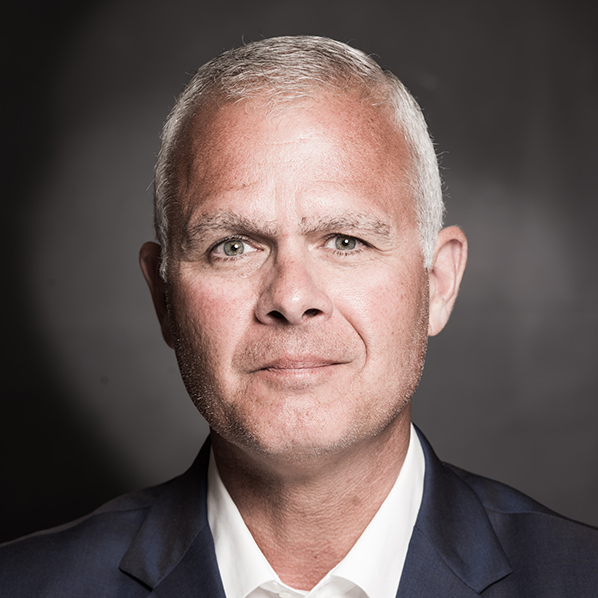
The staying shadow of 9/11 and American ideals
The 20th anniversary of the attacks perpetrated on September 11, 2001 is here.
In the shadow of 9/11, counter-terrorism (CT) efforts can be seen as two contradictory lines of effort, metaphorically reminiscent of “eye for an eye” actions versus a more forgiving New Testament CT covenant.
But it’s the Old Testament — aggressive battlefield CT work — that necessarily dominated much of my attention and work overseas in the previous two decades, and as a policymaker in the first year of the Trump White House.[i] The National Security Council’s (NSC) CT policy team benefited from U.S. and coalition capabilities that supported finding and fixing terrorists — al-Qaeda and ISIS terrorists — while air power relentlessly killed them on the ground. Those aggressive battlefield campaigns overshadowed an emphasis on what I characterize as New Testament CT policy work, that in a more settled time must focus more on root causes of terrorism, counter-radicalization, a cogent terrorist prevention architecture, and even rehabilitation and reintegration programs for former terrorists.
But as we have all learned throughout a global pandemic, cross-species virus transmission is an epidemiological certainty in the health science world, and it’s apparent that Islamist terrorist ecosystems are adaptive, too. Disappointingly, despite all that we have learned and endured in the CT fight since 9/11 — with all the sacrifices of “blood and treasure”— the nation must comprehend that the threat has not gone away.
In the end, resilience will not keep the nation safe, but perseverance will — with an eye always toward America’s ideals.
Col. Christopher P. Costa, USA, (ret.), is a 34-year veteran of the U.S. Department of Defense and the U.S. Army, where he served the majority of his service with Special Operations Forces as an intelligence officer. He last served in the United States Government as the Special Assistant to the President and Senior Director for Counterterrorism, NSC at the White House in 2017-18.
[i] For a detailed overview of the first year of the Trump administration’s CT policy work at the NSC, see, for example, Seth Loertscher and Nick Kramer’s, “A View from the CT Foxhole, Chris Costa, Former Special Assistant to the President and Senior Director for Counterterrorism, CTC Sentinel, July 2020, https://ctc.usma.edu/a-view-from-the-ct-foxhole-chris-costa-former-special-assistant-to-the-president-and-senior-director-for-counterterrorism/.
-
John McLaughlin
John McLaughlin
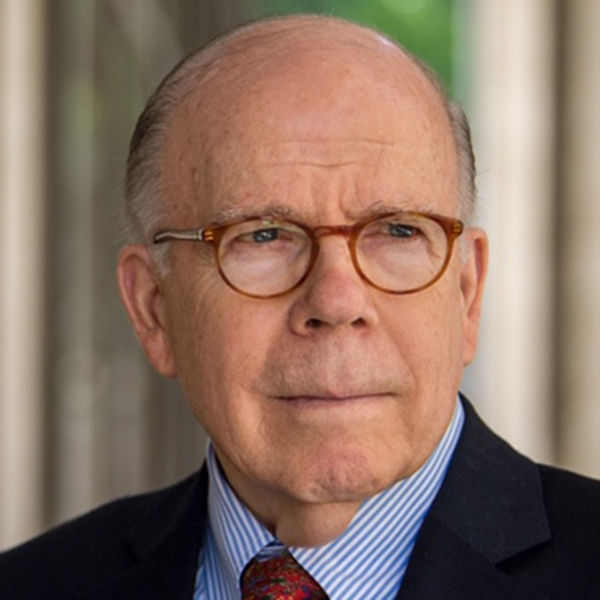
"Nothing will ever be the same"
I was the CIA's deputy director on September 11, 2001. When the planes hit the Twin Towers, my first reaction — other than profound sadness at the massive loss of life — was: "So that’s it." At the CIA we had been warning for at least two years about the potential for a catastrophic terrorist attack, and that summer had gone to the White House twice on short-notice emergency visits to say threat reporting was spiking and lights were "blinking red." But we did not know the timing or the specific target, which of course finally became clear that morning. That night in my office, September 11, I wrote a single sentence to myself around 10:00pm: "Nothing will ever be the same." The week following 9/11 was full of briefings to Congress, video conferences with the president, and a Saturday meeting at Camp David at which the CIA laid out a plan for attacking al-Qaeda in dozens of countries around the world, beginning with Afghanistan. The following Monday, September 17, we gathered at the White House. The president said he wanted the CIA "first in" to Afghanistan to prepare to attack al-Qaeda and overthrow the Taliban. We had two teams on the ground in northern Afghanistan 15 days later, and, as I wrote that fateful night, nothing has ever been the same.
John E. McLaughlin is the Distinguished Practitioner in Residence at the Johns Hopkins School of Advanced International Studies (SAIS) where he teaches a variety of courses and conducts research. Mr. McLaughlin served as Acting Director of Central Intelligence from July to September 2004 and as Deputy Director of Central Intelligence from October 2000 to July 2004.











